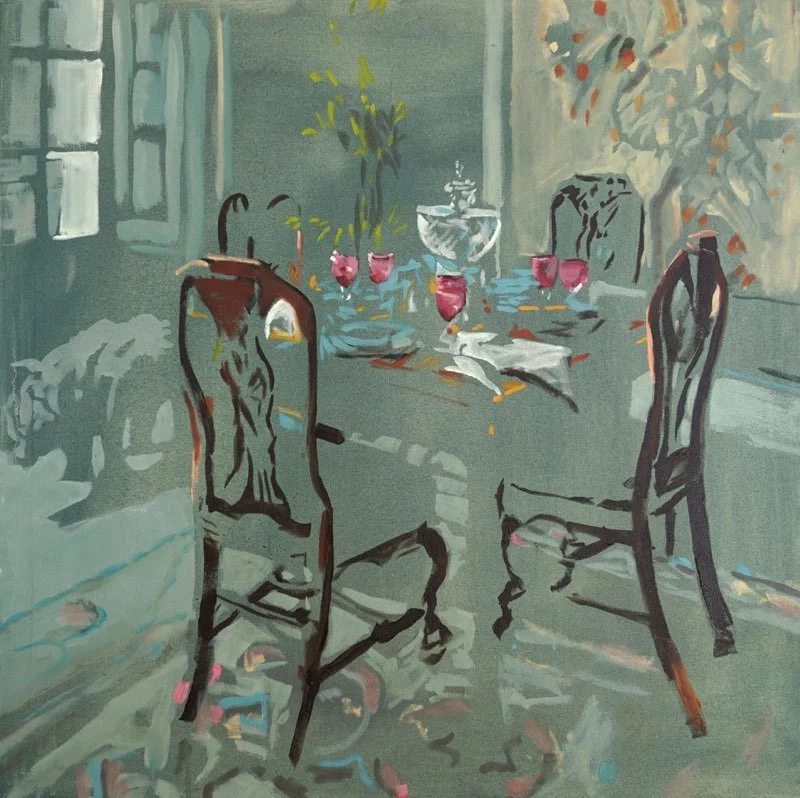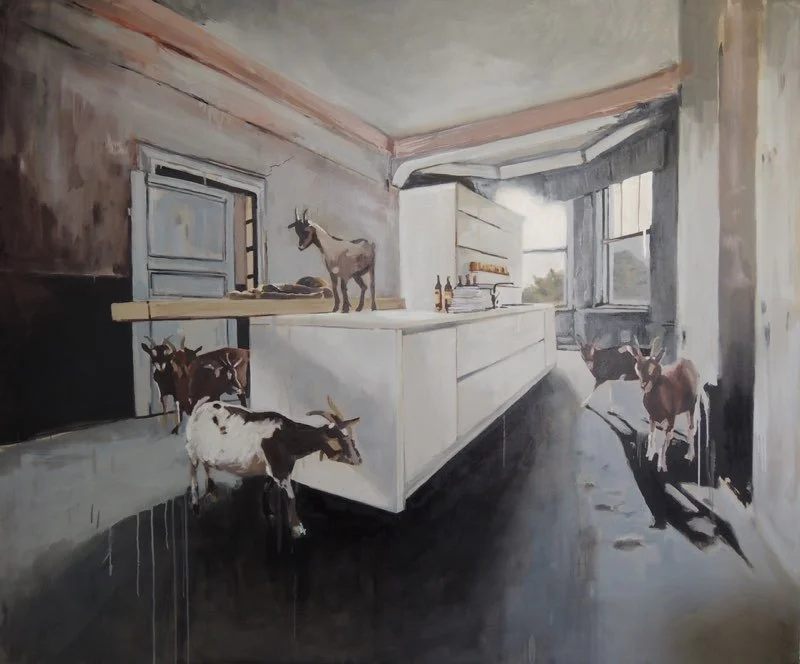ARTIST INTERVIEW: ANDy ALLEN
Andy Allen
Tell me about yourself. How have you turned your passion for art into a career? What initially sparked your interest in becoming an artist?
I was born in North Wales, grew up in north Nottinghamshire and now live in Prague. I’ve made Art since I was a child. In school, my art teacher said I would do well at art school, I never knew such a thing existed, but I loved making art so I pursued it. I studied Fine Art at Loughborough University, and after exploring many mediums, I specialised in drawing and painting. Fine Art, as I’m sure many can attest, is a bit of a brain rewiring exercise. Art and discourse provide a powerful lens through which to view life and contemporary culture.
Since graduating, I worked many flexible jobs to allow my practice the space, time and funds to grow and develop. I like the challenge and I like the balancing act of being a professional artist.
The Peacock, 2021
What is your main source of inspiration? Where do you feel most inspired?
Most of my pieces start from found imagery. I sketch and collage, sometimes digitally to see if the idea has potential.
Travel is important, a change of scenery always helps to generate new ideas. Then time to distil ideas in my studio with all of my favourite toys and tools at hand.
Rhinocerous, 2020
Thinking about your piece, 'The Empress', what was your creative process from start to finish? How did you establish the composition?
The piece was inspired by a photograph I found from 1906, I sketched and collaged to explore and adapt the composition. This particular piece was then gridded up on a large handmade canvas. The grid is still faintly visible as a celebration of the process.
Once the composition was established I then moved into oils, starting with the darks. I chose a very limited palette of just four colours (after Anders Zorn), as I wanted the piece to be harmonious and desaturated. The darks were applied with a stiff hog brush. Pushing the paint deep into the weave of the canvas. I tried to paint in short bursts with many breaks because I wanted the piece to have a sense of energy and immediacy.
Which part of your process excites you the most?
I am quite a fan of stretching the canvas and preparing the ground. The most exciting part is probably the first few marks, breaking the blankness of the ground.
What does a typical day look like for you in the studio?
I will arrive in the morning, kettle on, music on and jump straight into painting. After lunch I usually relax for an hour, take some coffee, visit a neighbour or call a friend. Around 2pm is round two and I jump between painting and exercise. My studio has evolved a little in the last years into a space I can also comfortably work out. Jumping between painting and exercise works for me nicely. A bit of clarity and focus from the exercise can really help when I’m stuck. Sometimes I sleep over, work late and eat tinned sardines.
Kozy II, 2018
Who is your greatest artist inspiration? If you could ask them one question, what would it be?
I am inspired by many artists for many different reasons, my taste changes all the time. I’m unsure about the question but I would love to watch Sargent paint. Or maybe Adrian Ghenie.
What has been your greatest achievement so far as an artist? Have you endured any challenges?
A couple of years ago I made it to the final round of the John Moores Painting Prize. This has always been a dream of mine. I’ll keep trying and maybe one year I’ll make the show.
Being a professional artist is a challenge, balancing my practice, life and family, other work, engaging with my local community and scene, as well as maintaining relationships and relevance internationally requires me to wear many hats and be incredibly organised. Which I am not.
Earlier this year I had surgery on my hand so my practice has been on pause, I’m on the mend now and starting to get those brushes moving again. The last few months have been challenging for me, studio time is an important part of my life. It’s my chance to decompress, reflect and relax. More and more I’m starting to understand how important making is for my mental health.
What are your future aspirations as an artist?
In the short term, working towards a solo show and a couple of competitions. In the longer term developing and challenging my own aesthetic character. Growing as an artist and hopefully trying to produce some great paintings.
Why do you think art is important in society?
It has always been the artist’s responsibility to poke and prod, ask questions, offer no answers and hold a mirror towards society. This is as necessary now as it has always been.
Aesthetically, in an age of cold minimalism, I want to see bold colours and exciting textures. And in an increasingly digitalised world, I think the human touch and imagination has even greater value.











